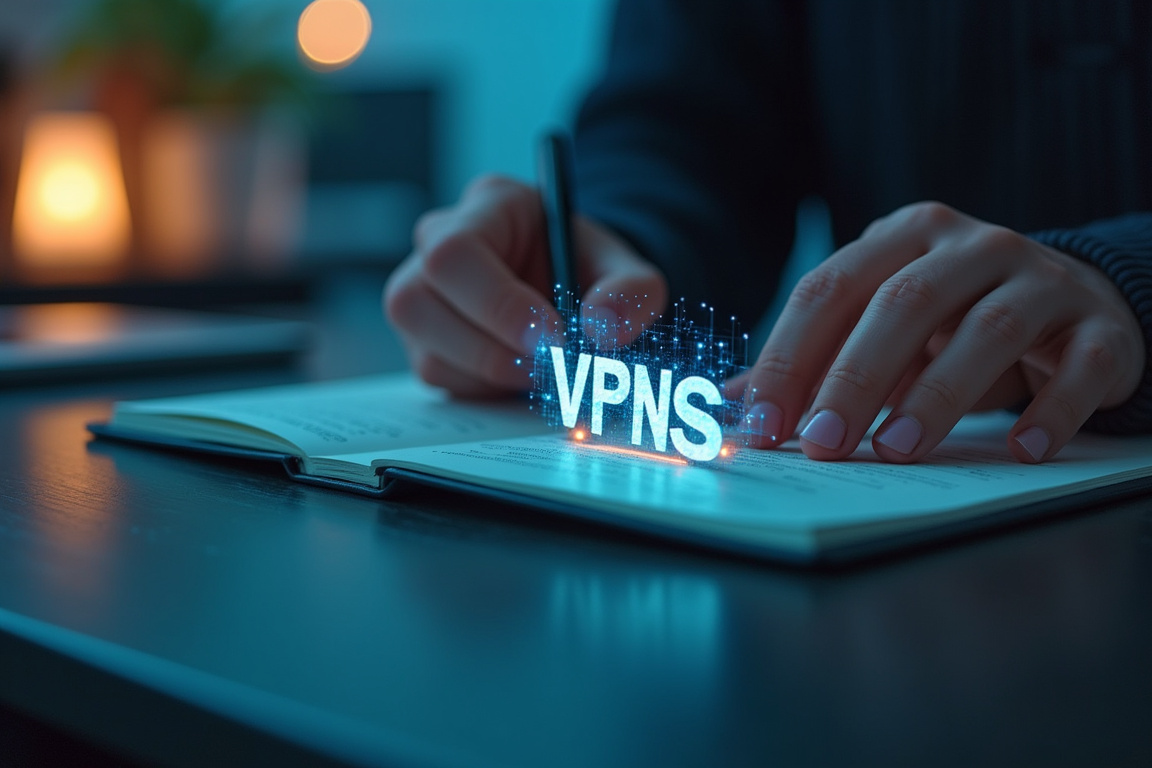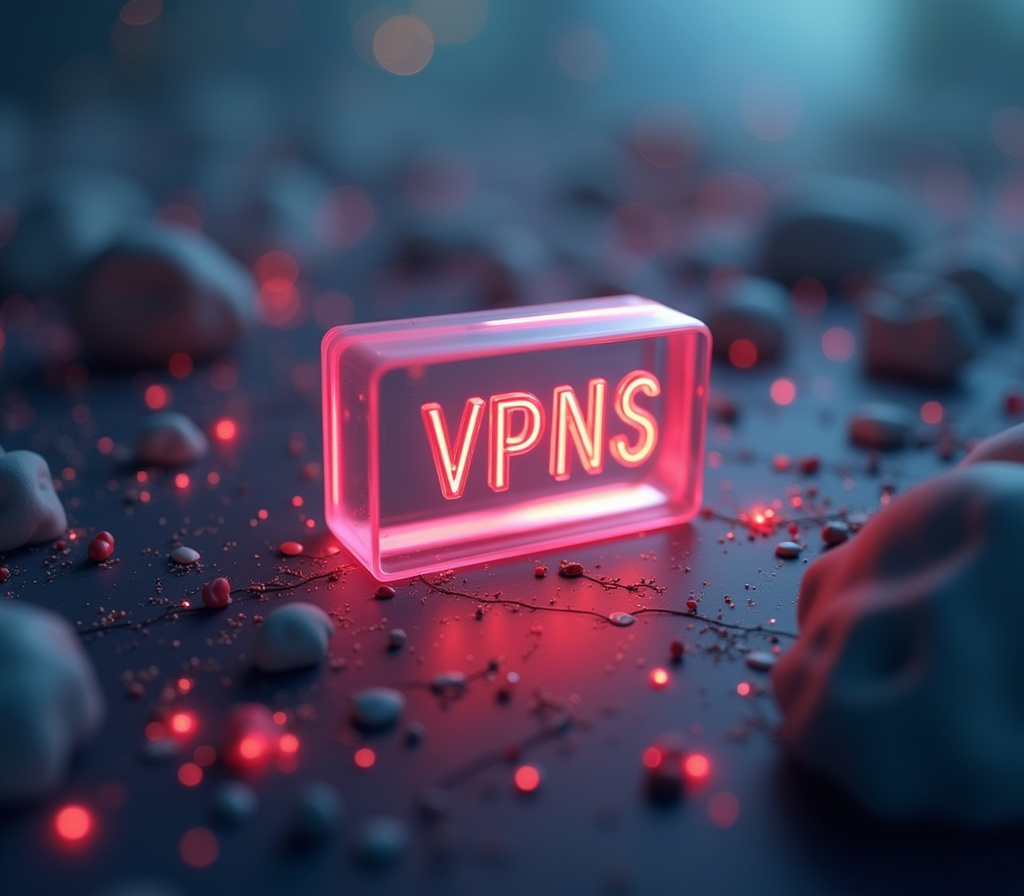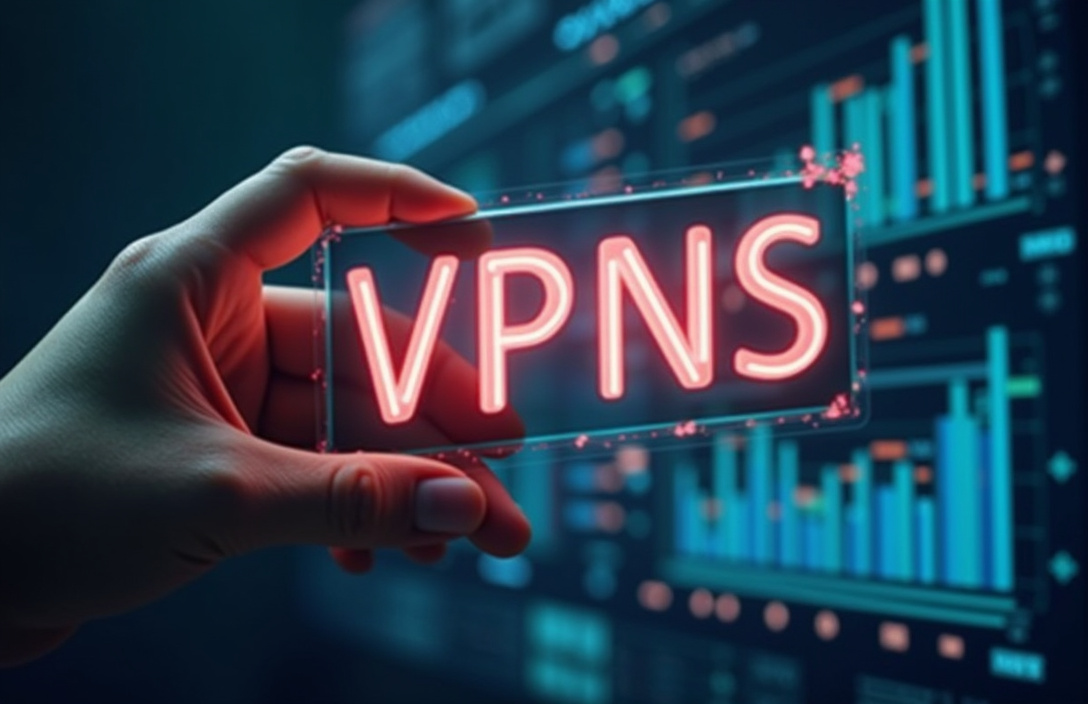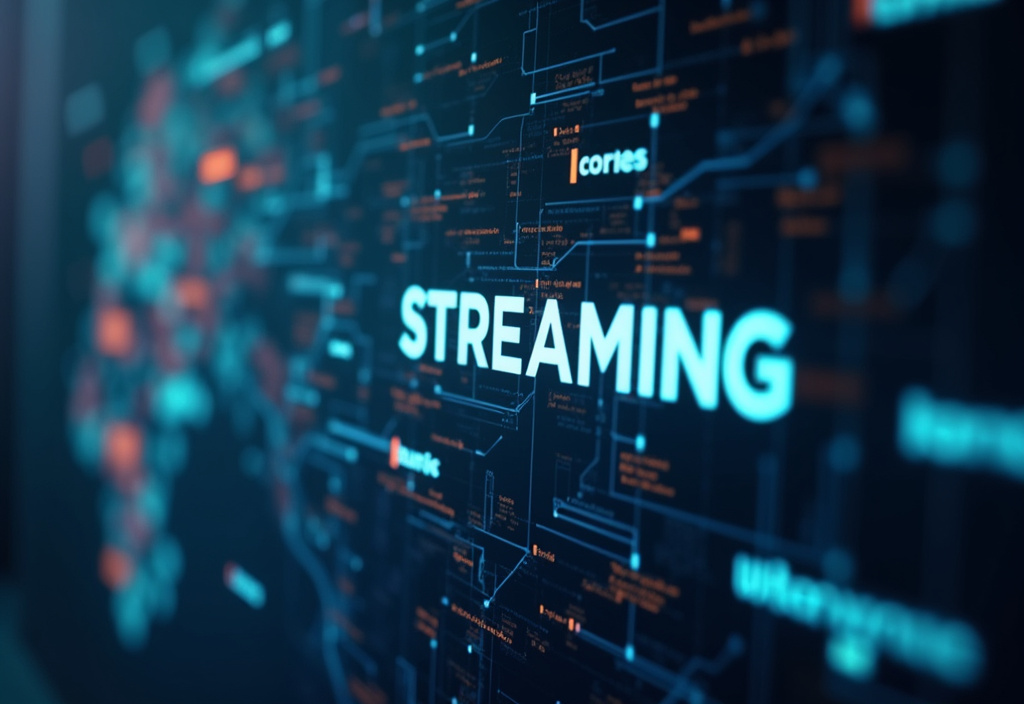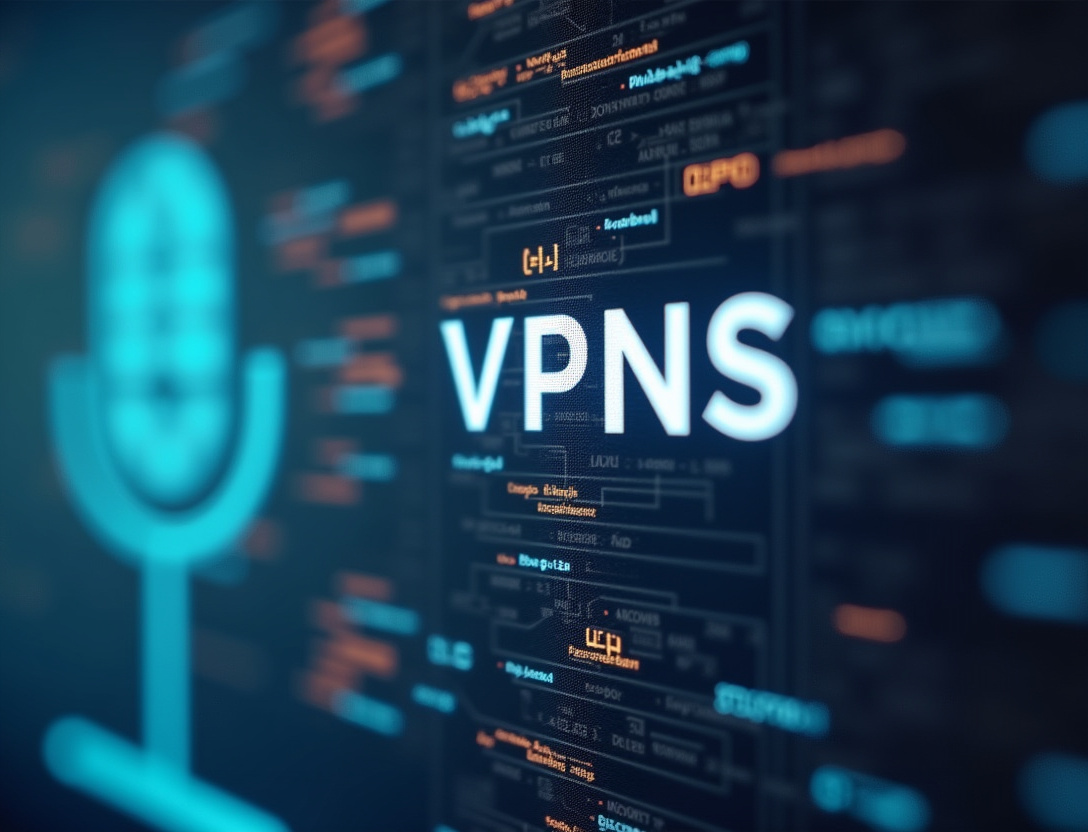VPNs for Audio Streaming Services: Securing Listener Data
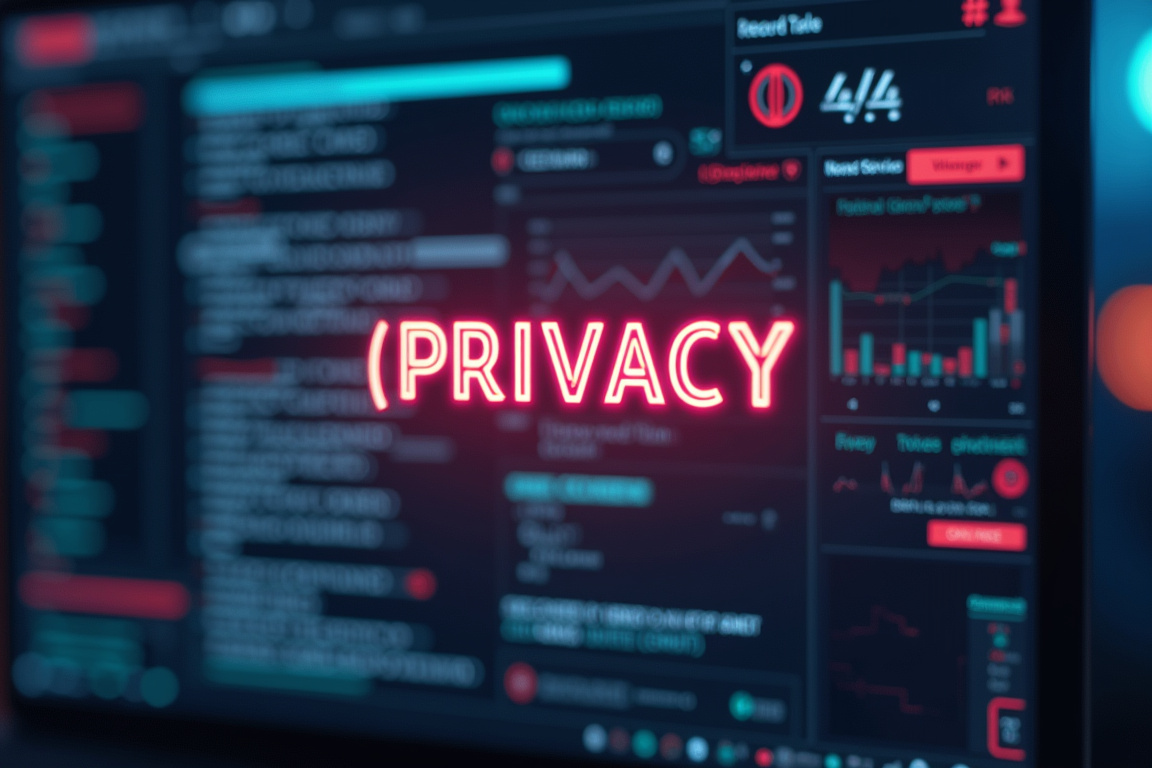
Table of Contents
In the ever-expanding digital realm, audio streaming services have revolutionized how we consume music, podcasts, audiobooks, and other spoken-word content. These platforms offer unprecedented convenience and access, putting vast libraries of audio entertainment at our fingertips. However, this ease and accessibility often come with inherent risks to user data security and privacy, making the implementation of Virtual Private Networks (VPNs) a critical consideration for both audio streaming providers and their listeners.
This article delves into the multifaceted role of VPNs in safeguarding listener data within the audio streaming ecosystem. An audio streaming VPN acts as a robust shield, encrypting internet traffic and masking IP addresses, effectively bolstering listener data security and providing comprehensive streaming content protection. Crucially, we'll explore the technical intricacies of VPNs, their strategic implementation, and the significant benefits they offer in preserving user privacy and enhancing the overall listening experience.
The primary cause for concern arises from the sheer volume of personal information that audio streaming services collect. This data trove can include listening habits, geographical location, device specifications, and even sensitive payment details. Such a wealth of information becomes a prime target for breaches, hacking attempts, and potential misuse by malicious third parties, creating avenues for identity theft, precisely targeted advertising campaigns, and other disconcerting privacy infringements.
A VPN serves as a powerful countermeasure, effectively mitigating these risks by establishing a secure and encrypted tunnel for data transmission. This makes it exceptionally difficult, if not impossible, for unauthorized entities to intercept or decipher the information being transmitted. VPNs ensure that your valuable data, including listening history and personal details, remains shielded from prying eyes, protecting your digital identity and preventing unwanted surveillance.
Beyond data security, VPNs offer another significant advantage: the circumvention of geographical restrictions imposed by some audio streaming services. Many platforms limit content availability based on the user's detected location, a consequence of complex licensing agreements and copyright regulations. By connecting to a VPN server strategically located in a different country, listeners can effortlessly bypass these frustrating limitations, gaining access to a broader and more diverse range of audio content that would otherwise be unavailable to them.
This enhanced accessibility expands the user's entertainment options and fundamentally improves the overall value proposition of the streaming platform. For instance, a listener in Europe could connect to a US-based VPN server to access exclusive content not available in their region. The integration of VPN technology is equally essential in preserving anonymity and maintaining user privacy.
When listeners connect to an audio streaming service through a VPN, their actual IP address is effectively concealed, preventing the platform from accurately pinpointing their precise location. This proactive measure is especially pertinent for individuals who place a high priority on their privacy and prefer to keep their listening habits confidential. The use of a VPN guarantees that their online activities remain virtually untraceable, providing a vital layer of defense against potential surveillance or intrusive data collection practices.
This anonymity allows listeners to explore a wider range of content without the fear of being tracked or profiled, fostering a more relaxed and uninhibited listening experience. Furthermore, the careful selection of a VPN can even contribute to improved streaming speeds and the reduction of frustrating buffering issues. In some instances, Internet Service Providers (ISPs) may engage in bandwidth throttling for specific types of internet traffic, including audio streaming.
By encrypting the data stream and masking the user's online activity, a VPN can effectively bypass these throttling measures, resulting in a substantially smoother and more reliable streaming experience. This is particularly beneficial for listeners who frequently encounter irritating interruptions or delays while attempting to enjoy their favorite audio content. An optimized VPN connection ensures that data packets are transmitted efficiently, preventing congestion and optimizing the overall streaming performance.
In conclusion, an audio streaming VPN is not merely a technological add-on; it's an indispensable tool for safeguarding listener data and enhancing the overall streaming experience. Encrypting traffic, masking IP addresses, and enabling access to geographically restricted content provides comprehensive protection for both listeners and audio streaming providers, ensuring increased privacy, robust security, and uninterrupted enjoyment of audio content. The increasing adoption of VPNs within the audio streaming industry reflects a growing awareness of the paramount importance of data protection and the user's inherent right to maintain control over their digital footprint.
As the digital threat landscape continues to evolve and become increasingly sophisticated, the role of VPNs in securing listener data and protecting streaming content will undoubtedly become even more critical, establishing them as a cornerstone of responsible and secure audio streaming practices.
The technical architecture of an audio streaming VPN involves several key components working harmoniously to ensure secure and private data transmission, a critical aspect of streaming content protection. At the heart of this architecture lies the encryption protocol, the very mechanism responsible for scrambling the data before its journey across the internet. Key players in the encryption arena include OpenVPN, IKEv2/IPsec, and WireGuard, each renowned for offering distinct levels of security and performance characteristics, thus providing a suite of options to tailor VPN implementation to specific needs.
OpenVPN stands as a widely respected and extensively deployed protocol, celebrated for its robust security features and its impressive compatibility across a diverse range of devices and operating systems. Its flexibility extends to supporting various encryption algorithms, empowering administrators with granular control to fine-tune security settings based on specific requirements and threat models. This adaptability makes it a cornerstone for many VPN solutions aimed at securing audio streaming traffic.
IKEv2/IPsec emerges as another compelling choice, particularly well-suited for mobile devices where seamless connectivity and resilience are paramount. This protocol excels at delivering fast connection speeds and maintaining exceptional stability, crucial for uninterrupted audio enjoyment on the move. Its inherent design includes an automatic reconnection feature, ensuring that the VPN tunnel is re-established swiftly in the event of temporary network disruptions, preventing any exposure of unencrypted audio streams.
WireGuard represents a more recent innovation, gaining considerable momentum for its remarkable simplicity, blazing-fast speed, and unwavering security. It leverages state-of-the-art cryptographic techniques while maintaining a lightweight footprint, making it an ideal contender for audio streaming applications where performance is a critical factor. Its streamlined code base and modern design principles contribute to reduced overhead and enhance overall efficiency, translating into a responsive and lag-free listening experience.
Beyond the encryption protocol, an audio streaming VPN relies on a geographically distributed network of servers. These servers act as secure intermediaries, positioned strategically between the user's device and the audio streaming service's infrastructure. When a user connects through the VPN, their internet traffic is routed via the selected VPN server, effectively masking their true IP address and concealing their actual location.
This crucial mechanism underpins both anonymity and the ability to bypass geographical restrictions imposed by streaming platforms. The judicious selection of these VPN servers is a pivotal element for optimizing performance and guaranteeing a consistently stable connection. Reputable VPN providers typically offer a broad spectrum of server locations spanning the globe, granting users the freedom to connect to servers physically closer for reduced latency or to servers in specific countries to unlock restricted audio content.
The proximity principle dictates that choosing a server geographically nearer to the user's actual location often translates into lower latency and, consequently, faster streaming speeds. The VPN client software residing on the user's device shoulders the responsibility of managing the entire VPN connection, including the establishment of the secure tunnel, the encryption and decryption of data, and the maintenance of a stable link. This client software acts as the user's interface with the VPN service, handling the complex technicalities behind the scenes.
A well-designed client incorporates features such as automatic server selection based on performance metrics, a critical "kill switch" that automatically severs the internet connection if the VPN link unexpectedly drops, preventing any unencrypted data from leaking, and DNS leak protection, which ensures that all DNS requests are routed through the secure VPN tunnel, avoiding exposure to the ISP's potentially vulnerable DNS servers. Complementing these user-facing components, the VPN provider's robust infrastructure incorporates comprehensive network security measures meticulously designed to fortify the VPN servers against a barrage of cyber threats and to ensure the unyielding privacy of sensitive user data. These critical measures typically encompass sophisticated firewalls, advanced intrusion detection systems that proactively monitor for malicious activity, and frequent, rigorous security audits that systematically identify and rectify any potential vulnerabilities within the system.
The ultimate efficacy of an audio streaming VPN hinges on the holistic quality of its underlying technical architecture, the strength and sophistication of its chosen encryption protocols, the strategic global distribution of its server network, and the scrupulous implementation of layered security measures. By diligently evaluating these interconnected factors, listeners can confidently select a VPN solution that strikes the optimal balance between robust security, seamless performance, and unwavering privacy, thereby transforming their audio streaming experience into a secure and enriching one.
Implementing a VPN for audio streaming services necessitates careful consideration of various factors to ensure optimal performance, robust security, and a seamless user experience. This holds true both for audio streaming providers seeking to protect their content and their listeners' data, as well as for individual listeners aiming to enhance their privacy and security while enjoying their favorite audio content. For audio streaming providers, integrating VPN technology can serve multiple crucial purposes.
Firstly, it can bolster streaming content protection by preventing unauthorized access and distribution of copyrighted material. By requiring users to connect through a VPN, providers can create a more secure environment, making it significantly harder for pirates to intercept and redistribute streams. This is particularly important for platforms offering exclusive or premium content.
The VPN can verify the user’s location and ensure they are authorized to access the content according to licensing agreements. Secondly, VPNs provide a layer of obfuscation that can protect the provider's infrastructure from Distributed Denial of Service (DDoS) attacks and other malicious activities. By masking the actual IP addresses of the streaming servers, VPNs make it more difficult for attackers to target them directly, enhancing the overall resilience and stability of the streaming service.
This protection helps maintain consistent service availability and prevents disruptions caused by malicious actors. Thirdly, providers can leverage VPN technology to gather valuable insights into user behavior and listening patterns while maintaining user privacy. By anonymizing user data through the VPN, they can gain a better understanding of their audience without compromising their privacy.
This data can be used to optimize content recommendations, improve the user experience, and personalize marketing efforts more effectively, leading to increased user engagement and satisfaction. Furthermore, implementing a VPN can demonstrate a provider's commitment to data security and privacy, which can be a significant selling point for attracting and retaining users. In today's privacy-conscious environment, users are increasingly concerned about how their data is being collected and used.
By offering a VPN as part of their service, providers can build trust with their audience and differentiate themselves from competitors who do not prioritize privacy. For individual listeners, the implementation of a VPN is primarily driven by the desire for enhanced privacy and security. By connecting through a VPN, listeners can prevent their ISP, government agencies, and other third parties from monitoring their online activities and collecting data about their listening habits.
This is particularly important for individuals who live in countries with strict censorship laws or who are concerned about government surveillance. The VPN effectively hides their online footprint, protecting their privacy and allowing them to access content freely without fear of reprisal. In addition to privacy, a VPN can also provide a more secure streaming experience, especially when using public Wi-Fi networks.
Public Wi-Fi hotspots are notoriously insecure and are often targeted by hackers looking to intercept data. By encrypting their traffic through a VPN, listeners can protect their personal information, such as login credentials and payment details, from being stolen by malicious actors. This added layer of security is crucial for preventing identity theft and other online fraud.
Selecting the right VPN is essential for achieving optimal performance and security. Listeners should choose a reputable VPN provider that offers a wide range of server locations, strong encryption protocols, and a clear privacy policy. They should also consider factors such as connection speeds, bandwidth limits, and the availability of customer support.
A well-chosen VPN can provide a seamless and secure streaming experience, allowing listeners to enjoy their favorite audio content without compromising their privacy or security. In conclusion, the implementation of a VPN is a strategic decision that can benefit both audio streaming providers and individual listeners. Providers can leverage VPNs to protect their content, enhance their infrastructure security, and gain valuable insights into user behavior, while listeners can use VPNs to protect their privacy, secure their data, and access geographically restricted content.
By carefully considering the various factors involved, both parties can ensure that VPN technology is implemented effectively to achieve their desired goals.
The concept of privacy within the context of audio streamingVPNs is multifaceted, extending beyond simple data encryption. It encompasses a broader set of principles and practices aimed at protecting user anonymity, controlling data collection, and ensuring transparency in how personal information is handled. Achieving true privacy requires a holistic approach that addresses various aspects of the audio streaming ecosystem and respects the user's fundamental right to control their digital footprint.
At the core of privacy is the principle of data minimization, which dictates that audio streaming services should only collect the data that is strictly necessary for providing the service and should avoid collecting any extraneous or unnecessary information. This principle helps reduce the risk of data breaches and minimizes the potential harm that could result from the misuse of personal information. VPNs contribute to data minimization by masking the user's IP address and location, preventing the streaming service from collecting precise location data and associating it with the user's account.
This is particularly important for users who value their anonymity and prefer to keep their listening habits private. Another key aspect of privacy is transparency, which requires audio streaming services to be clear and upfront about their data collection practices and how they use personal information. This includes providing users with a clear and easy-to-understand privacy policy that explains what data is being collected, how it is being used, and with whom it is being shared.
VPNs can help enhance transparency by giving users more control over their data and allowing them to monitor the data being transmitted between their device and the streaming service. By using a VPN, users can gain a better understanding of the data being exchanged and can make informed decisions about whether to continue using the service. The principle of user consent is also crucial for protecting privacy.
Audio streaming services should obtain explicit consent from users before collecting or using their personal information and should provide users with the option to opt out of data collection at any time. VPNs can empower users to exercise their right to consent by allowing them to control the data that is transmitted through the VPN tunnel. Users can choose to disable certain features or block certain types of data from being transmitted, giving them greater control over their privacy.
In addition to these principles, there are also various technical measures that can be implemented to enhance privacy within the audio streaming ecosystem. One important measure is end-to-end encryption, which ensures that data is encrypted from the sender to the receiver, preventing anyone from intercepting and reading the data in transit. However, end-to-end encryption is often not feasible for audio streaming, as it would require the streaming service to decrypt the data on their servers in order to deliver it to the user.
Nonetheless, VPNs can provide a similar level of security by encrypting the data between the user's device and the VPN server, protecting it from being intercepted by ISPs, government agencies, or other third parties. Another important technical measure is data anonymization, which involves removing any identifying information from the data, making it impossible to link the data back to a specific individual. VPNs can contribute to data anonymization by masking the user's IP address and location, preventing the streaming service from identifying the user based on their network information.
However, it is important to note that data anonymization is not always foolproof, and it may be possible to re-identify anonymized data using other information. Therefore, it is important to use VPNs in conjunction with other privacy-enhancing technologies and practices. Ultimately, achieving true privacy within the audio streaming ecosystem requires a collaborative effort between audio streaming services, VPN providers, and individual users.
Audio streaming services should adopt privacy-conscious data collection practices, provide transparent privacy policies, and obtain explicit user consent before collecting or using personal information. VPN providers should offer reliable and secure VPN services that protect user anonymity and encrypt data traffic. Individual users should take an active role in protecting their privacy by using VPNs, reviewing privacy policies, and making informed decisions about the services they use.
VPNs have become essential tools for securing digital communications, and their role extends significantly into the realm of media, particularly audio streaming. When considering the efficacy and integration of a VPN for media, it is important to move beyond the basic understanding of IP masking and delve into the nuances that truly optimize the user experience and minimize potential drawbacks. The advantages of employing a VPN for enhancing media accessibility are clear.
Circumventing geographical restrictions allows listeners to access content unavailable in their region, expanding their entertainment horizons. However, the key to a successful implementation resides in selecting a VPN service that offers a wide array of server locations, ensuring reliable connections to various regions without compromising speed. Some VPNs offer specialized servers that are optimized for streaming, promising faster speeds and more stable connections.
These servers are designed to handle high bandwidth demands, resulting in less buffering and a smoother overall experience. Critically, consistent speed and reliable connections are paramount. A VPN might promise the world regarding access, but if the connection constantly drops or the speed is agonizingly slow, the benefits are negated.
Extensive research into VPN providers known for their robust infrastructure and optimized streaming capabilities is crucial. Reviews and user testimonials often provide valuable insights into real-world performance. However, performance is an ongoing requirement; frequent server maintenance and upgrades are indicators of a provider committed to delivering a consistent, high-quality streaming experience.
Beyond performance, security protocols are equally crucial. The chosen VPN should employ strong encryption methods (such as AES-256), ensuring data confidentiality and integrity. A ‘kill switch’ feature is also vital; this automatically disconnects the internet connection if the VPN connection drops, preventing any accidental exposure of the user’s actual IP address.
Moreover, protection against DNS and WebRTC leaks is crucial to ensure complete anonymity. DNS leaks occur when DNS requests are routed through the ISP's servers instead of the VPN's, revealing the user's true location. WebRTC leaks can expose the user’s IP address even when the VPN is active.
Robust VPNs offer built-in protection against these vulnerabilities. Importantly, the user interface and ease of use of the VPN software should not be overlooked. Intuitive software allows users to easily connect to different servers and adjust settings without requiring extensive technical knowledge.
Compatibility with various devices (desktops, smartphones, tablets) is also crucial for seamless usage across different platforms. The user interface directly impacts the overall enjoyment of the service. Cost considerations also play a role.
While free VPNs might seem appealing, they often come with limitations such as bandwidth caps, limited server locations, and potentially intrusive advertising. Premium VPN services generally offer better performance, more features, and stronger security, but require a monthly or annual subscription. Comparing the value proposition of different VPN providers, taking into account their features, performance, and pricing, is essential for making an informed decision.
Ultimately, the "best" VPN for audio streaming VPN is the one that seamlessly blends robust accessibility, unwavering performance, state-of-the-art safety protocol , user-friendly interaction, and affordable pricing into the mix. The final aspect to consider is the VPN provider’s commitment to privacy. It is essential to choose a provider that adheres to a strict no-logs policy, meaning they do not track or store any user activity, ensuring complete anonymity and bolstering listener data security.
Scrutinizing the VPN provider's privacy policy is of utmost importance, as it unveils the extent of data collection and storage practices. Selecting a VPN with a transparent and user-centric strategy assures heightened privacy when indulging in your beloved audio content.
Stay Updated
Get the latest VPN news, tips, and exclusive deals to your inbox.
